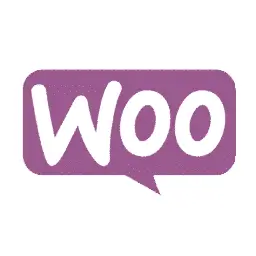Spanish-English-Dutch Wordpress translation
We set up your WordPress website and configure it to translate from English to Dutch or from Dutch to English. Translate your WordPress and start selling your products also in Belgium, The Netherlands.

Ever thought of translating your WordPress corporate site into Dutch?
WordPress is the most widely used Content Management System (CMS) on the Internet. More than 60% of websites in English or Dutch have been developed using this popular CMS.
In a globalized world, translating your WordPress from English into Dutch makes it possible to expand your market niche and sell your products and services in other interesting countries like Belgium, The Netherlands.
Our native Dutch-speaking translators will faithfully translate your most valued content into Dutch. They will employ the right words and phrasing to capture the attention of your potential customers located in and in other countries where Dutch is widely used.
Once your WordPress is linked to our translation management platform, we will import every piece of content and text string. All translations will be assigned and reviewed by expert Spanish-English-Dutch translators. All pieces of information are taken into account: pages, posts, custom fields and custom post types, taxonomies (like categories and tags), slugs, menus, widgets and meta-tags to help you rank your site properly.

Multilingual plugin available in Dutch
By default, WordPress is not designed to be multilingual. WPML is a plugin developed by OntheGoSystems that allows you to translate you WordPress site into Dutch. You can also choose the local dialect of Dutch that is spoken in Belgium, The Netherlands. That way, you will be addressing Dutch in proper Dutch and encourage them to buy your products and services.
Our English-Spanish-Dutch translation service for WordPress includes a lifetime license and updates for the WPML plugin. In order to calculate the volume of words to be translated, we can install this multilingual plugin and easily export the WordPress content into our translation management platform. You will only be paying a word rate.
Translation memories are multilingual databases where English / Spanish / Dutch sentences are paired and saved for future use. This is a significant cost saving, since the same sentence is translated and paid for one single time.
Translating your WordPress website into Dutch will rank your pages in Google and Yahoo. With a good SEO strategy Dutch will find you and trust your brand more. Translating for SEO purposes is also called International SEO. In the case of WordPress, we specially recommend the Yoast SEO plugin, which is compatible with WPML and allows for the translation of meta-tags (title, description and keywords) from English into Dutch or vice versa.

Woocommerce: get your online shop easily translated into Dutch or from Dutch
Woocommerce is a comprehensive set of plugins for creating your online shop. Why not translating your shop into Dutch? Choose your best selling services and products: now you can translate all your product names, description and the purchase process into Dutch or into any language you choose. Woocommerce is fully compatible with both WPML and Yoast SEO, so if you invest in translating into Dutch you can be sure that your website will not have any incompatibility issues.
Do not limit your market share to English-speaking web users. a professional translation into Dutch will pay off in the long run and will help your company build trust in countries such as Belgium, The Netherlands…
Who speaks Dutch?
Of the almost 24 million Dutch-speaking (nederlands in Dutch) people in the Netherlands, Belgium (Flemish) and South Africa (Afrikaans), almost 90% have access to the Internet.
More language services in Dutch:
Get your WordPress in Dutch or into any of these languages:
Contact us now and translate your content into Dutch
Can we help?
Where does the Dutch language come from?
Dutch originates from the Franconian dialect of Low German. In the 12th century it became the literary language of Middle Dutch.
From the seventeenth century the new Dutch became a fully independent language, and in South Africa it evolved into a dialect language called Afrikaans (also known as "Cape Dutch").
Dutch is a West Germanic language with about 28 million speakers, mainly in the Netherlands and Belgium. There are small Dutch-speaking communities in northern France around Dunkirk. Dutch is also spoken in Aruba, the Netherlands Antilles, Suriname and Indonesia.
The official or standard form of Dutch is known as Algemeen Beschaafd Nederlands (ABN), 'General Civilised Dutch'. It is taught in schools and used by the authorities in the Netherlands, Flanders (Belgium), Suriname and the Netherlands Antilles. An association known as Taalunie (Union of Languages), which was established by the governments of the Netherlands and Flanders, regulates the spelling and orthography of NBA. The alternative names for the ABN are Algemeen Nederlands (AN) and Standaardnederlands, Standard Dutch.
Dutch dialects spoken in Belgium are known as Flemish (Vlaams). They differ somewhat from the Dutch spoken in the Netherlands in intonation and pronunciation, and there are small differences in vocabulary, including words borrowed from French and English that are not found in standard Dutch.
The Dutch language evolved from the Lower Franconian dialect (Niederfränkisch) of Low German. The first known example of a document written in Old Franconian appears in a 9th century Latin manuscript, the Laws of the Salic Franks, and in translations of the Psalms. Some poetry written in Middle Dutch survives, dating back to the 12th and 13th centuries. The Dutch translation of the Bible, the Staten-Bijbel, from 1619-1637, was one of the first important works of modern Dutch.